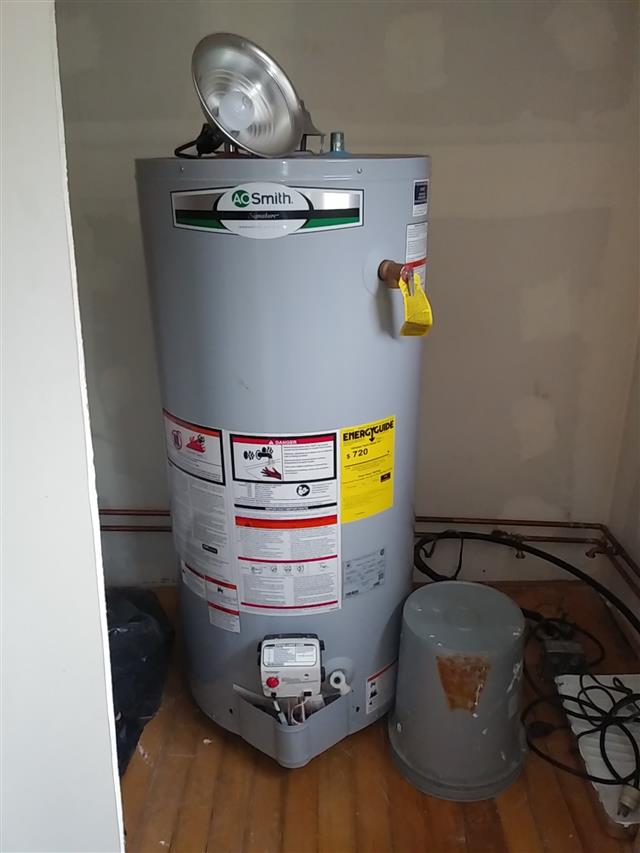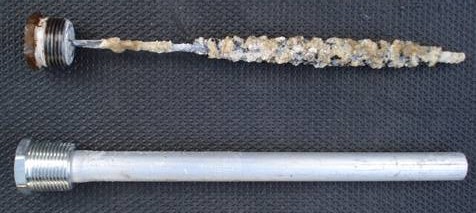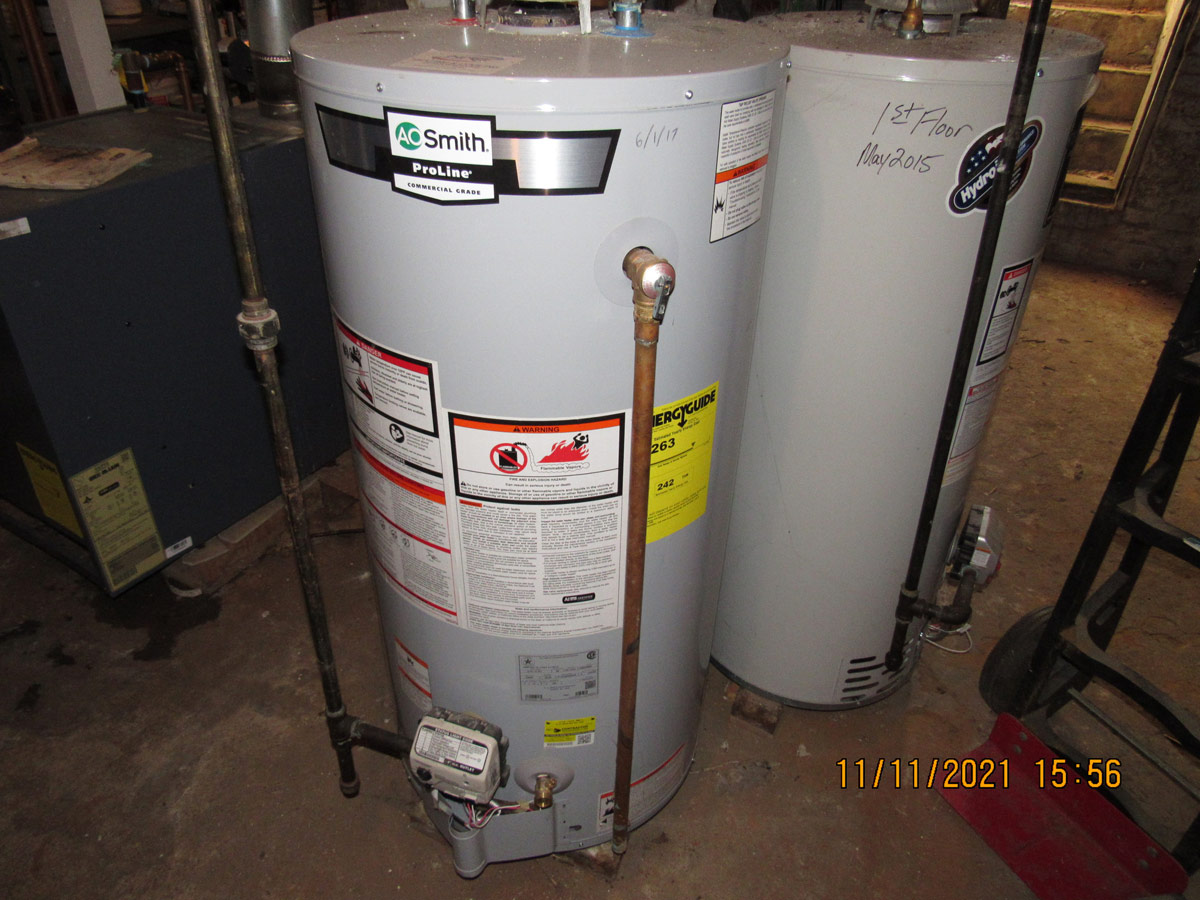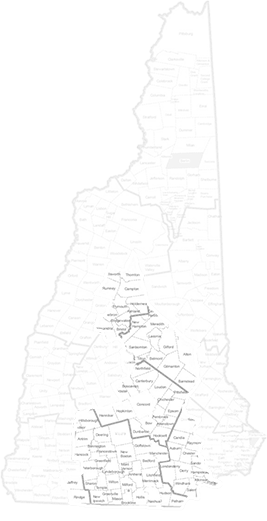Water Heater Maintenance Tips
What About Hot Water? Water Heater Maintenance Tips
When was the last time you thought about your hot water heater? For most of us, the hot water we use to cook, clean and shower with does not magically appear at the faucet. Oh, and while we are on the subject, if you do not shower on a regular basis, out of courtesy to those around you, please start. Anyway, we don’t think much about where our hot water comes from, and our water heaters are frequently the most over-looked of all the appliances in our homes. If more than a year has passed since you took a few minutes to thank your hot water heater, please take the time to do so and pay close attention as you read on.
 There are several economical ways to extend the life and efficiency of your water heater, making your life that much more enjoyable. For those of us that take our hot water for granted, turn that faucet down to a temperature where you think a penguin would be most comfortable (What’s the matter? Chicken? I’m sure someone in your household would be more than willing to make the adjustment for you when you least expect it…) – now how much do you really appreciate your hot water? We thought so.
There are several economical ways to extend the life and efficiency of your water heater, making your life that much more enjoyable. For those of us that take our hot water for granted, turn that faucet down to a temperature where you think a penguin would be most comfortable (What’s the matter? Chicken? I’m sure someone in your household would be more than willing to make the adjustment for you when you least expect it…) – now how much do you really appreciate your hot water? We thought so.
First, we must understand the water that goes in to the tank. Water is a natural solvent and will eventually dissolve just about anything it comes in contact with. That is why we fill pots and pans with water and let them soak in the kitchen for a day or two (be honest… sometimes a week or more…). We could go off on a tangent about water quality, but let’s save that for another day. Now think what that very same water can do to the inside of your water heater! Oh dear. Well, no need to panic – the engineers that develop these magical systems have made water heaters somewhat user-friendly to maintain.
One of the easiest maintenance steps for your water heater is to drain and flush it annually (once a year or every 12 months – whichever comes first). There is a drain valve at the bottom of the tank just for this purpose. Don’t believe us? Go check – it’s there! Now how many of you just realized how handy it would be if that water heater was installed about 8” higher, up on concrete blocks? And no, the manufacturer didn’t stick it there just for one more place for water to leak from, we can assure you of that. For your protection, and more importantly, ours, we are going to advise you to reference your water heater’s manual for detailed instructions on how to properly drain and flush your water heater. No idea where it is huh? Well, that’s not an excuse anymore. Thank goodness for the internet. Please understand we are also not responsible for what comes up in your search listings when you search ‘water heater maintenance’ – All we can do is hope for the best. Regardless, prepare to be amazed at the gunk that comes out.
 In addition to flushing your tank, most gas and electric water heaters have what is called a sacrificial anode rod (pictured here) that is screwed in to the top of the tank and made of magnesium or aluminum. These rods do just as the name suggests (sacrifice themselves) so that those pesky little H’s and O’s do not damage other metallic parts of the water heater. Depending on what is in your water, the anode rod (or rods, as some larger tanks have more than one) should be replaced every 5 years. If you are an avid DIY’er anode rods are relatively easy to replace.
In addition to flushing your tank, most gas and electric water heaters have what is called a sacrificial anode rod (pictured here) that is screwed in to the top of the tank and made of magnesium or aluminum. These rods do just as the name suggests (sacrifice themselves) so that those pesky little H’s and O’s do not damage other metallic parts of the water heater. Depending on what is in your water, the anode rod (or rods, as some larger tanks have more than one) should be replaced every 5 years. If you are an avid DIY’er anode rods are relatively easy to replace.
As we are a Southern NH Home Inspection company, we are not going to give you directions on how to flush your water heater or how to change the anode yourself. I’m pretty sure that would send our lawyers in to cardiac arrest. As much fun as that sounds, we do recommend you call your trusted plumber. If you are looking for a plumber in the greater Manchester NH area, check out our trusted local resources page.
If you are a fan of new, shiny things and enjoy writing large checks to your plumber every six-to-eight years to replace your water heater, then please ignore the previous information. With proper care and maintenance, you should be getting somewhere in the 12-15 year range (on average) out of your water heater.
A couple safety things we should mention: No matter how tempting it is, DO NOT touch the little lever thing on the Temperature Pressure Relief (TPR) Valve unless you have the parts and patience available to replace the valve. It will leak. If the TPR valve is already leaking, it is time to replace it. Whatever you do, DO NOT plug the end of the pipe that water is leaking out of!!!! This is a built-in safety mechanism that is designed to open automatically should things go awry in your water heater, allowing scalding-hot water and steam to escape, avoiding the infamous KA-BOOM! There should be a piece of copper pipe attached to this valve that terminates within 6” of the floor? If not, you need one.
patience available to replace the valve. It will leak. If the TPR valve is already leaking, it is time to replace it. Whatever you do, DO NOT plug the end of the pipe that water is leaking out of!!!! This is a built-in safety mechanism that is designed to open automatically should things go awry in your water heater, allowing scalding-hot water and steam to escape, avoiding the infamous KA-BOOM! There should be a piece of copper pipe attached to this valve that terminates within 6” of the floor? If not, you need one.
Questions, comments, or concerns? Please share! And as always, if you are in search of a home inspector in greater Bedford NH, Milford NH, or Peterborough NH, please feel free to call or email. We are more than happy to come walk through your home with you and take a look at what needs done for maintenance. You don’t need to be buying or selling a home in Southern or Central NH, we work with many current homeowners that just want to learn more about how their home works – we offer Home Maintenance Inspections just for you!

















Your tip about absolutely not touching the lever on the TPR sounds almost like a challenge! If my husband read that, he would immediately run to the water heater and touch it. Although, I think that ours is actually leaking so I’ll have to send him out to get the proper parts to repair it and then I’ll let him touch the lever.
I really like your first point about knowing the water that is going into the tank. I had never really thought about how we use water to let things soak to clean them, and it always works. So thinking about this water in that same way makes a big difference. We need to have it checked out more often, to make sure that it is running well.
Thanks for the information on draining and flushing the water heater! I didn’t realize this was something we needed to do annually, but it’s definitely something I’ll make sure to take care of! I just moved into my first home, and I am always looking for tips on how to take good care of my appliances so that they last as long as possible. I’ll have to look up the manual for my water heater so that I can keep it in tip top shape while I’m living here!
I appreciate the tip to drain and flush your water heater once a year! I’ve never considered that water heater maintenance tip before. I’ve heard tank-less water heaters are more efficient and easier to maintain. Is that true?
I didn’t know all this about hot water heater maintenance. I hadn’t ever thought about the damage that water can do just sitting in the heater! I will definitely start taking better care of our water heater. I think I’ll call a pro to help though, since I don’t trust myself.
It’s good to know how to take care of water heaters. It’s pretty cool that those rods sacrifice themselves to keep the rest of the heater safe. I don’t know the last time that was changed out in my heater, so I should look at it.
Draining and flushing your water heater annually is a great maintenance tip. Referencing the manual so that you know how to properly drain and flush your system would be important. If you have problems with doing the maintenance, or can’t locate the manual, you’d probably want to get in contact with a professional water heater service so that it will get taken care of properly.
Thanks for mentioning that you should drain and flush your water heater every year. I didn’t know that was necessary. We are getting less and less hot water lately, and I am trying to find ways to fix the problem. I will have to make sure to start flushing the tank annually so we can avoid problems in the future.
It’s good to know that when it comes to maintaining a water heater, that one thing we need to make sure that we have the water drained and flushed annually. This is something that we will have to keep in mind so that we will know that everything is running smoothly. We just had a new one installed, and this is something that we will have to remember so that it can stay running for a long time.
Thank you for reminding me to drain and flush my water heater at least once or twice a year for easy maintenance. I think I haven’t done anything to maintain my water heater properly for the past three years, and that’s why sometimes I’d get cold water even if I have waited a while to have the water heated in the tank. Also, I think it’s better for me to call an expert in water heater repair in order for me to know the root cause of the problem. It might be more serious than I imagine.